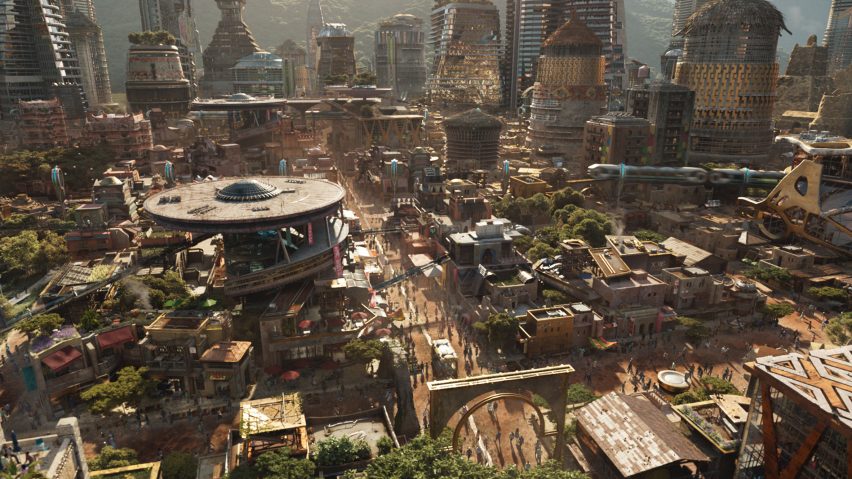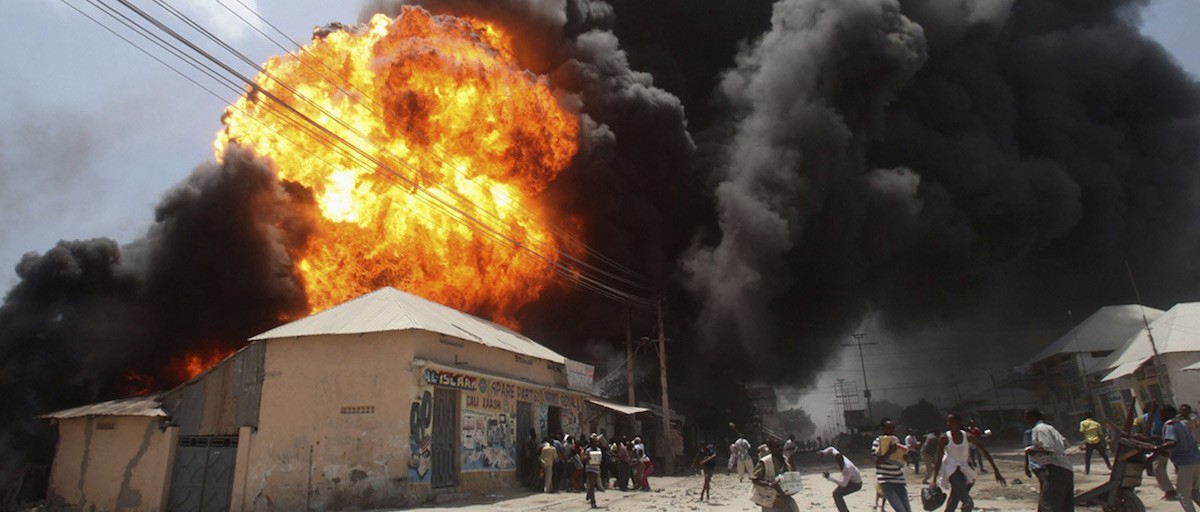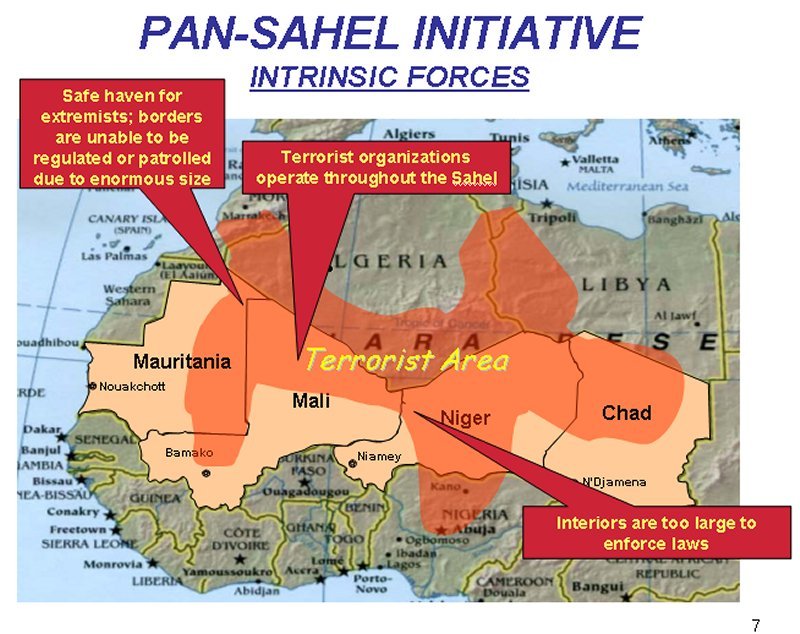 admin (PRO)
admin (PRO)I'd like to thank my opponent for engaging in this debate with me. I've been away from debating for a while and it's great to be back.
1. Why do we give foreign aid?
As a principle, I want to begin the debate by proposing that foreign aid is a way for us to help as many others as possible. In this sense, we should try to choose means which maximise positive ends in the Sahel region.
In particular, the Sahel has a number of serious issues which aid should be directed towards:
- People are going hungry. It's hard to fix your problems when you don't have food.
- Infrastructure is crumbling and people are too hungry to rebuild it.
- The environment is suffering due to climate change and other factors, making it harder than ever to grow food.
- People are fighting each other for political reasons, such as control of the food.
- Somewhat like in other famished states like North Korea, the people are increasingly turning to drugs to alleviate the problem of hunger.
- Their economies are fragile due to a lack of food security and poor infrastructure.
I'd also like to advance a few criteria by which positive ends might be measured. First and foremost, we should want to help the largest number of people. It would entirely defeat the purpose of any aid program if it allowed only a few warlords to live well by pointing guns at serfs throughout the region. By "helping" I refer to meeting a broad spectrum of human needs, including access to food and drinking water, as well as economic and social security, and to a lesser extent political freedoms, in that order. People shouldn't have to fear for their lives because they're starving, thirsty, penniless, caught up in a wild mob or persecuted unjustly by equally-hungry "politicians".

This is an actual photograph of what currently remains of the Sahel region.
2. Impact of development aid
In an environment that can be described as a real-life version of the Hunger Games, probably the most immediate forms of assistance to come to most people's minds are food, agricultural infrastructure, loans to small businesses to help people earn money and buy more food, and maybe even some other infrastructure such as healthcare to deal with the side effects of famine like disease. This type of assistance can be broadly termed "development aid" and that's what I'll be supporting in today's debate.
While of course we tend to view such impacts on a regional or national level, consider it from a more personal point of view. If you're a small family in Mali, you might have a few cattle and a little garden out the back of your hut. You're afraid because you're the only one in the household who works - you go to a factory in the city, but due to the poor economy, you don't really earn that much. Conditions are rough. Last year you developed a harsh cough but had to keep working anyway. Your lungs haven't felt the same since. But that's better than what many others are going through. Your colleagues are all just as screwed as you are. Your daughter can't go to school because you can't afford it, and you're afraid some of the hungry young hooligans roving around the countryside will abduct her. Your mother died last year, and your wife has to travel for miles each day to collect water.
Only a few years ago did you get electricity, and that was thanks to Power Africa, so development aid is realistic and achievable. You've heard China has been investing into a lot of aid around here recently as well, though it hasn't reached your village yet. If you could speak to the leaders of wealthier nations, you'd probably tell them that your family needs their help. You need the chance for fair wages and conditions. You need food to feed your family and medicine to help them. If people would only stop fighting about the food, perhaps you could save up and send your daughter to learn to read or count.
Families like this are especially important to consider because they're the vulnerable ones; they're the ones who've taken huge risks and done everything they can to provide for themselves and help others all their lives; they're the ones who need and deserve our support. Development aid helps them directly. It's a way for them to develop their farms, avoid starving to death, and ultimately become self-sufficient again. It's sustainable, with the caveat that many of the Sahel's problems were primarily caused by western nations in the first place (such as climate change), and therefore we have a certain responsibility to them at home as well.

What development assistance to Africa looks like
3. Guns shoo people away
In general, if somebody goes about ransacking places and shooting wildly, people tend to not want to get in their way. This is a good thing because guns can aid in the killing of people. In fact, guns are usually primarily designed to be lethal. They're not designed to help grow crops, nor to cure disease, nor to earn you money. They're not even primarily designed for security, although this can be a secondary benefit. However this security is only there because of fear; it doesn't actually help people live better lives. Furthermore, if the guns fall into the wrong hands, they can (and often do) have exactly the opposite effect, provoking unrest. This is what significantly helped the rise of Boko Haram in the region, an Islamist fundamentalist group whose core belief is that librarians must die. Bolstered in numbers by hungry young men looking for an excuse to pillage stuff, they helped cause a lot of the instability in the region.
Now, however, they are hardly a threat. Declaring war on Boko Haram at this point would scarcely be more effective than Kony 2012. Rather, many people decided they were fed up with the whole thing and go to Europe as economic refugees instead. Mixing in with people sick of war from the middle east, they demonstrated that people don't stick around for long in such conditions. All the hunger, poverty and violence was too much!
This is the consequence of what we might term military aid - pumping weapons into the area in the hopes that it will change anything. Unfortunately, history has proven many times that it won't. Almost every conflict in the past 50 years has come about from groups/factions/nations fighting with weapons acquired from a western country through military aid; often, these weapons have been turned against those countries themselves. This is because of a thing called the military-industrial complex, where some companies make money selling weapons, so they sell them everywhere and hope people use them all up in wars so they can sell them more (or play up how big a threat the other side is, so they can sell them all upgraded weapons).
This is all bad for the Sahel because it means people move out, making it harder for those remaining behind to help the vast Sahel area to recover. It devalues the country and drives those remaining to more extremes. Those who do leave take unimaginable risks, and many have already perished in the Sahara Desert or crossing the Mediterranean Sea. Even if they do make it, the fate of many refugees in Europe has left much to be desired. Furthermore, it inevitably punishes women and children, who are most likely to be left behind because of the dangers of the journey. Lacking infrastructure, they often cannot even receive money or gifts from family working overseas.
A better way of creating security is to deal with the challenges that cause insecurity directly. As I mentioned earlier, political insecurity follows food insecurity.

Me dropping my mixtape
4. Conclusion
Development assistance can help the Sahel region overcome it's most immediate and significant shortcomings. It concerns public goods or other resources that are readily accessible to all. Therefore it well meets the criteria of helping as many people in the area as possible, and giving them what they actually need. Unlike military aid, development assistance helps people work their way out of poverty, feeds their bellies and cures their diseases. This end totally justifies the means which I am proud to defend. At the very least, if we must choose between both forms of aid, priority should be given to peaceful and pragmatic solutions - development assistance - over violent and desperate ones.
The resolution is affirmed.
Return To Top | Posted:
2019-01-08 00:02:49
| Speak Round the_viper (CON)
the_viper (CON)I'm glad to be able to participate in such an interesting debate.
1. Warlords benefit from food assistance. According to one study [1], warlords tend to use hunger as a tool, seizing a fraction of food to feed their soldiers. If development assistance was provided, this might result in a surplus of food, but this surplus would be short-lived as warlords take food from those who need it. Combatants also often bribe aid workers or cut deals with them.
2. According to one article, Sahel suffers from a "power vacuum" [2]. Conflicts between regional powers ensure that there will be a general lack of stability unless there is a stable government. Even if the hunger crisis in Sahel were to be averted, this instability would still be an issue, likely to plunge the area back into food instability. While my opponent has stated that food instability causes political instability, one report found that the opposite can also be the case [3] With the power vacuum remaining, both food and political instability would likely return.
3. Despite the short-lived benefits of development assistance, as my opponent listed, such a plan is unlikely to be very effective in the long run. Areas tend to become dependent on foreign aid [4], making them less likely to spur the economy. This can inhibit development, progress, or reform.
While my opponent states that development aid is realistic and achievable, it is far less helpful in the long-term than one might think. As the Independent Commission for Aid Impact warns, "The Department for International Development’s results system is not currently oriented towards measuring or reporting on long-term transformative change – that is, the contribution of UK aid to catalysing wider development processes, such as enhancing the ability of its partner countries to finance and lead their own development" [11].

Despite growing aid in Africa, growth has decreased [5].
Filling the Power Vacuum
I suggest that the most practical solution is thus to fill the power vacuum. My opponent says that "guns shoo people away" and claims that military interference would go down like Kony 2012. However, the reason the attempt to find Kony required so many resources was that it was a manhunt for a specific person. This is not what I suggest.
Contrary to my opponent's claim, military assistance has historically been an effective tool for achieving influence in remote areas [6]. The main drawback from military aid is that it results in less cooperation from the government aid is being given to, but this would not be an issue because the Sahel region is not run by a specific government. The main drawbacks from military aid occur when it is given to non-state armies, but troops could be sent rather than weapons, and cooperation would not be an issue. Therefore, while my opponent says that "pumping weapons into the area" is ineffective, this is not a full picture of optimal military aid. Rather than simply sending weapons to one group or another, troops could be sent from other countries, giving direct control of military efforts to the country providing the aid.
The military–industrial complex
My opponent says that the military-industrial complex would be an issue because companies would have an incentive to produce an excessive amount of weapons. However, he fails to show (a) why providing military aid would make this incentive any greater than it already is or (b) why the government would be unable to regulate the sale of weapons to foreign powers. Since the military-industrial complex is simply defined as institutions attempting to garner support for military action [7], it is unlikely that either of these would be the case. While the military-industrial complex might increase support for military aid in the Sahel region, it does not follow that an increase in aid would magnify the problems caused by this complex. Another problem with this objection is that the military-industrial complex could not even be a problem in certain countries. In France, for example, military-related enterprises are mostly run by the government.
Organized Control
Three countries in the Sahel have some of the twenty least stable governments [8]. Without organization, governments will have a hard time receiving any sort of development assistance. In one article concerning challenges with development aid, Navreet Kaur and Lhoukhokai Sitlhou found that one of the hardest issues with development assistance is good governance [9]. Poor governance can result in problems with allocation, which means that prioritizing development assistance over military aid would likely be much more chaotic than setting an organized framework beforehand. The clearest way to do this is using military control.
Maintaining organized control in the Sahel has also been an effective system for cooperating governments as of February 2008 [10]. As one UN representative noted, increased regional ownership and security has caused great optimism for the future of Sahel. Given this effective system, it seems imperative that governments continue to prioritize these kinds of long-term solutions.

Lack of enforcement and organization creates difficulty dealing with terrorists [12].
Summary
I think it follows, then, that we should prioritize military aid over development assistance for several reasons. First, sending food (a form of development assistance) can backfire without sending in a military since foreign governments will be powerless to stop warlords from taking the food for their armies. Second, as long as a power vacuum remains, conflict will chip away at even an enormous amount of development assistance. This power vacuum must be solved in the form of military aid. Third, development assistance is inferior to military aid because it causes dependence, which won't help foreign countries in the long run. While there is a time and place for development assistance, the Sahel region is in no position for an aid package which prioritizes this over military action. I agree with the many benefits my opponent has listed of having enough food, such as time for going to school. However, military aid is essential to allow countries to become stable enough to eventually experience these benefits.
Works Cited
1. http://citeseerx.ist.psu.edu/viewdoc/download?doi=10.1.1.680.2958&rep=rep1&type=pdf
2. https://www.diis.dk/en/research/europe-must-play-a-part-in-filling-the-power-vacuum-in-the-sahel
3. https://apcss.org/Publications/Report_Food_Security_98.html
4. https://www.twigh.org/twigh-blog-archives/2015/7/31/aid-dependency-the-damage-of-donation
5. https://www.weforum.org/agenda/2015/10/does-foreign-aid-always-help-the-poor/
6. https://scholars.org/brief/military-aid-effective-tool-us-foreign-policy
7. https://www.britannica.com/topic/military-industrial-complex
8. https://ceoworld.biz/2016/08/10/worlds-20-least-stable-countries-2016/
9. https://journals.sagepub.com/doi/abs/10.1177/0019556117699731
10. https://www.unodc.org/unodc/en/frontpage/2018/February/sahel_-governments-achieve-positive-results-with-un-support.html
11. https://www.telegraph.co.uk/politics/2018/02/20/foreign-aid-risks-making-third-world-countries-dependent-handouts/
12. http://www.oafrica.com/ict-policy/online-terrorist-activity-a-growing-concern-in-sahel-region/
Return To Top | Posted:
2019-01-09 07:15:39
| Speak Round admin (PRO)
admin (PRO)Round Forfeited
Return To Top | Posted:
2019-01-14 07:16:03
| Speak Round